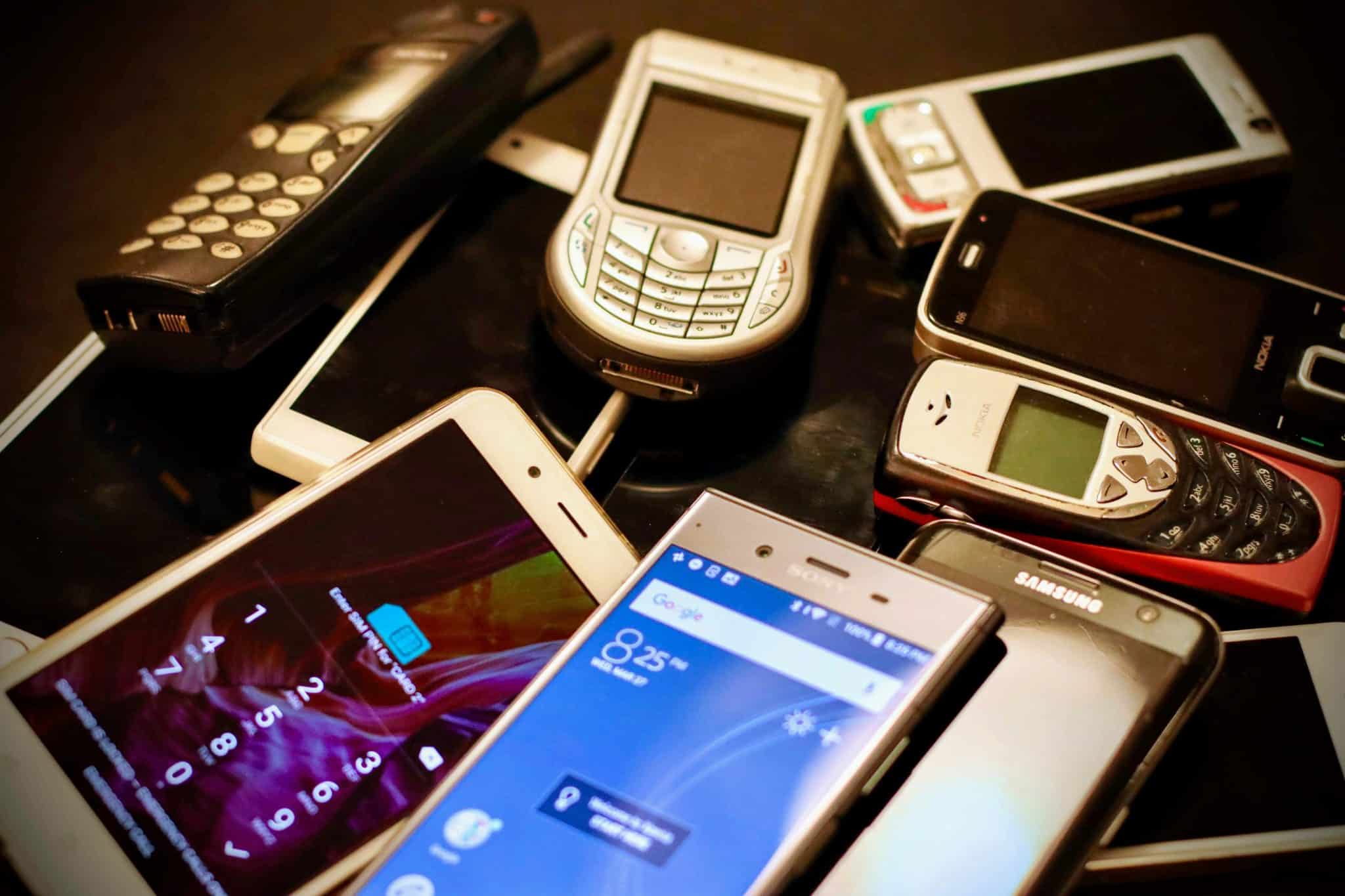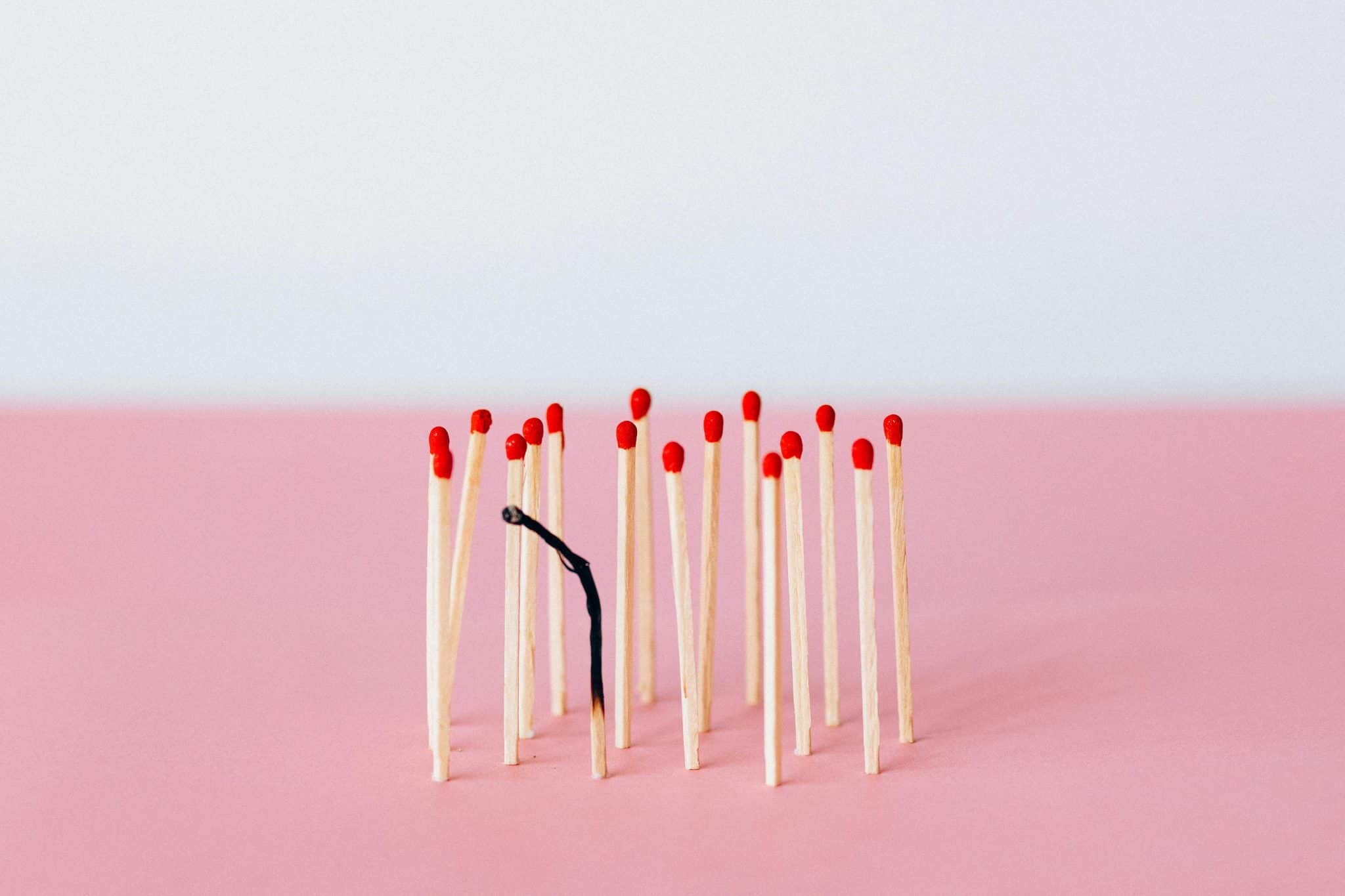Leesa Renee Hall: Focus Starts With Self-Care and Unplugging

At Freedom, we love our users – not just because they use our product, but because they’re cool – cool people working on cool stuff. Academy Award-nominated screenwriters, best-selling authors, editors, developers, cartoonists, star TV actors, academic researchers, explorers, and entrepreneurs – the Freedom community is packed with curious, creative, and efficient go-getters. We love to share their stories and advice, because how better to learn about productivity than from the productive?
Meet Leesa Renee Hall.
Leesa Renee Hall, (pronounced Lisa), is an author, facilitator, social historian, and creative word artist. After writing half a million words over 365 consecutive days, Leesa helps spiritual leaders use the art of self-inquiry to question their unconscious biases so they create truly inclusive communities, companies, and corporations. Leesa is on the Advisory Committee for Awarepreneurs, and her tips have been featured in American Express OPEN, Globe & Mail, and Inc. Magazine, along with television, radio, and podcast appearances.
So this week we sat down with Leesa to learn a little more about how she finds the focus, motivation, and time to create, write, and explore the things that matter most.
How did you know that you wanted to be a writer, storyteller, and creative word artist? What were your first steps in making this your career?
I didn’t think I could ever make a full-time career out of writing. When I entered the job market after graduating from university with a history degree, I thought I’d carve out a career as a freelance journalist. I got writing gigs, but not enough to pay the bills. I spent a couple years writing here and there while working temp jobs as an administrative assistant. Being an administrative assistant is the WORST job for an introvert and I didn’t like temping.
But I had a dream. I had always wanted to publish my very own magazine. At the time, I was dating a guy who was a computer science graduate. He recommended that I learn HTML (the hot programming language of the day) and launch my magazine online. Took me a month, but not only did I learn HTML, but I was able to launch my first dot com, an online magazine where I wrote articles about female amateur athletes.
I had no clue that by teaching myself HTML I’d unlock a 15+ year career in technology. After launching my dot com, I was hired by a start-up to code websites. I was then hired by an internet security firm as a technical project manager before moving to a global tech company as a software project manager. Eventually, I launched my own digital marketing agency.
My interest in digital marketing started to wane. I didn’t know what was next. Although I had authored seven non-fiction books, I knew that I didn’t want to publish another one. Instead, I wanted to explore my creativity. So, on January 3, 2017, I woke up at 4:30 am to write my first work of fiction. I wrote one chapter every morning for 59 straight days, even on the weekends. Then, on the 60th morning, I wrote expressively about a professional setback. The next morning, I woke to write expressively again. I continued doing so every morning after that.
I was writing about my lived experiences. I was also using writing to heal. Over 365 consecutive days, I wrote half a million words. Those words contain three memoirs, countless essays, a few stage plays, a sitcom, and random experiences. I published a blog post and it went viral (a typical post on my blog is shared 250 times; this one was shared 12,000 times). Soon after, I launched a community on Patreon where I share my writings with a core group of fans. Because of them, I can now call myself a full-time, well-fed writer.
As a writer in our digital age, how do you stay productive, motivated, and focused?
I carve out quite a bit of self-care and protect it judiciously. This is what keeps me focused in a day and age where attention is the new currency. I schedule Freedom during these times:
10:00 am to 1:00 pm Monday through Friday to protect me from distractions during my most creative time of the day
8:30 pm to 5:00 am Sunday to Thursday to protect my sleep
7:30 pm Friday evening to 7:30 pm Saturday evening to protect my personal sabbath where I cut the digital cord for 24-hours
Because I spend so much time online, it’s important that I rejuvenate using my self-care practices.
When/where are you most/least productive, and how does this shape your daily working routine?
I’m most productive in the early mornings. I wake at 4:30 am and after taking care of my biology needs, I start writing, at my desk, before 5:00 am. After I return from the gym, I do more writing until 10:00 am. I take a break, then return to my desk to revise my writings to get ready for publication. By the time I take my lunch at 12:00 pm, my brain is mush. I will not be able to do any more writing for the day. Nothing. By the early afternoon, I’m ready to play, have phone/coffee meetings with colleagues, or run errands. I’m pretty much useless in the afternoons.
At what point did you realize that tech, apps, and sites were taking a toll on your productivity and time? When did you know that you had to do something about it?
Because I get up at 4:30 am to write, I need, at least, seven hours of sleep to function. That means that I need to be, not just in bed, but asleep by 9:30 pm. My obsession with seeing who’s reacting to my writings on social media posts started to take its toll. I’d put my device down, then pick it up again just a few minutes later to see if someone, anyone, responded.
I’d also get sucked down a video rabbit hole watching people cooking foods on the street in foreign lands. I was mesmerized at how elaborate the streets foods are in places like Thailand, India, and Pakistan. Our street food in North America is one single hot dog on a bun. How boring.
I digress.
Watching those videos and waiting for reactions was keeping me up. The next morning, I’d have to force myself out of bed at 4:30 am. It was a struggle. I was committed to writing in the early mornings, but knew it wouldn’t work if I had to fight with myself each morning to wake up. It was time to do something different.
What resources or tools do you use daily and have found most beneficial to your productivity and/or writing process?
I don’t watch television, not because I can’t afford it, but because I was born with a television in my head. I’ve been blessed – and cursed – with an active imagination that takes me into fantasy worlds where the journey doesn’t ever seem to end.
When my body is ready to rest, my brain seems to take another 90-minutes (or more) to get the message. I’ve had to rely on a few products, apps, and podcasts to help distract my mind so that my body and brain are in harmony around sleep time.
Here are some of my favourite ones:
Freedom (of course)
750 Words – I use this site to type up my words. I find that I’m able to get the words out of my head faster if I type them up. What I like about this site is that it’s simple and it counts my words for me as I type. When I hit 750 words, a notification appears congratulating me on writing my daily page. Most times, I write more. I also like that I can collect badges which reward my efforts. Badges are given for writing 10 consecutive days in the early morning, for reaching your first 100,00 words, for writing under 20-minutes 10 days in a row. The badges help keep me motivated.
Sleep With Me Podcast – The host, Scoots, tells a really boring story in this twice-weekly podcast. He rambles, loses his train of thought, and goes down a few rabbit holes which makes it’s hard to keep up. For example, in one episode, he couldn’t figure out if the colour of the wall was beige, light brown, off-white, or tan. And that’s the point. If you’re not able to follow his story, the mind starts to wander and eventually, you fall asleep due to the sheer exhaustion of trying to follow Scoot’s really boring tale.
Sleep Cycle alarm clock app – This alarm clock is LIFE because it analyzes my sleep pattern and records when (and if) I snore. It’s fun to look back at the statistics to see when I fell asleep and when I hit my deepest sleep. I’ve also had a laugh listening to the audio recording of my snoring. But the cool part is that it wakes me up during the lightest portion of my sleep in the 30-minute window before I want to wake up. So, instead of being jolted out of my sleep exactly at 4:30 am, the sleep app will play a gentle song sometime between 4 and 4:30 am when I’ve reached my lightest sleep phase.
What project are you currently most excited about?
In my year of writing, I found a binder filled with everything that was ever published in a newspaper or magazine with my name in the article or the byline. I found a letter I had written back in 1994 to the editor of one of the daily newspapers, responding to a column that a journalist had written where he gave advice to Black youth in Toronto on how to thrive. I had recounted my story in the letter about some of the struggles I found being a young Black person in the city.
Below the clipping of my letter was another one. It was published in the newspaper about a week after mine. The authors of the letter self-identified as two white women in their 50s and they were reacting to my letter. They said that what I had experienced wasn’t discrimination and that if I go looking for racism, I’ll find it.
Back in 1994, I think I was happy that anyone responded to my letter. But now with my 40+-year-old eyes, I could clearly see in their letter that the two women were dismissing and denying my lived experience with racism.
As I read the clippings in 2017, I wondered to myself if the two white ladies in their 50s were still alive (they’d be in their 70s today). If so, would they be open to speaking to me? My goal would be to find out if they still held those same views. I then thought of the journalist who wrote the column that sparked my letter. Is he still alive? Would he be willing to speak to me about why he wrote that column?
It was in that moment, the theme for my first documentary was birthed. I had wanted to film a documentary since 2007 and now I finally had the topic I wanted to explore. My plan is to use the visual format to explore the intersection between skin colour, identity, and culture using my letter to the editor as a backdrop to the larger story. I’m rather excited about this as I believe that in times like these, stories which help us become more aware of our unconscious biases can help heal a nation.
What piece of advice would you give your younger self in regard to writing?
I’d tell myself to change your major multiple times. Change your job every few years. Launch a business, then change your brand a few times. These are things I did and I still turned out okay. Due to the richness of experiences I’ve had, and the many pivots I’ve had to make along the way, they inform my writings today. I never experience writer’s block because I simply recall the strange people I’ve met along the way, the bizarre projects I’ve been involved in, and the odd philosophies I’ve been exposed to. These lived experiences all bring a sense of diversity and richness to my writings.
What do you do outside of your work routine that helps you stay productive and focused on the things that matter most to you?
Aside from working out, spending time with people I care about, and spending obscene amounts of time in libraries, I enjoy watching re-runs of Star Trek: The Next Generation while sipping on some rosé. And yes, Captain Jean Luc Picard was the best captain ever. #fightme
To learn more about Leesa or her work, visit her site at Leesareneehall.com or visit her Patreon here.


